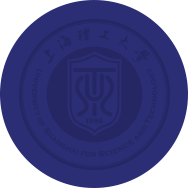Dragon Boat Festival originates from Spring and Autumn Period (770-476 BC). Different from other traditional festivals, it is an occasion with a strong social influence.
Since ancient times, the customs associated with the festival have had a human touch. The interpretation of a particular custom in each region is often linked to commemorations of local sages, such as the patriotic poet Qu Yuan. Despite many origins and legends, the festival is acknowledged and celebrated by most Chinese in memory of Qu, who lived in the latter part of the Warring States Period (475-221 BC).
The festival carries historical memories and spiritual connotations that transcend time to reflect Chinese people's unwavering patriotism. According to Shiji (Records of the Grand Historian), a vast history of the Chinese world from its beginnings to the late second century BC written by Grand Historiographer Sima Qian, Qu was a minister in the court of King Huai in the Chu state during the Warring States Period. Qu advocated empowering talent, enriching the country, strengthening the army, and making alliances with states such as the Wei and Qi to fight against the Qin state. However, he was strongly opposed by the nobleman Zilan and others. During his time in exile, Qu wrote long poems such as Li Sao (On Encountering Sorrow), Tian Wen (Questions to Heaven) and Nine Songs to express his concern for the country and its people. In 278 BC, the Qin Army conquered the Chu capital. Seeing that his homeland had been invaded, Qu was heartbroken. He could not bear to abandon his home, and committed suicide by drowning in the Miluo River. Legend has it that after Qu’s death, the Chu people were deeply saddened and flocked to the river to pay their respects. Fishermen took to their boats, scouring the waterway to salvage Qu’s body. One fisherman took out some rice balls, eggs and other food prepared for Qu, making a loud sound as he threw the food into the river, in the belief that if the fish, lobsters and crabs were full, they would not eat Qu’s body. When people saw this, they followed suit. One elderly physician brought a jar of realgar wine and poured it into the river to stun the dragons in the water so that it would not harm Qu’s body. Later, fearing that the rice balls would be eaten by dragons, people came up with the idea of wrapping rice in reed leaves and tying the leaves with colored silk thread. Thus, zongzi came into being. In Guangdong province, zongzi are filled with five-spice coated fatty pork and plenty of mung beans cooked inside the rice. In most cases, traditional cooks also add a whole salted egg yolk. In Beijing and other northern provinces, the preference is for sweet zongzi, filled with sugary red-bean paste. There is an old saying: 'Drinking realgar wine drives diseases and evils away!' Realgar wine, or xionghuangjiu, is a Chinese alcoholic drink consisting of fermented cereals and powdered realgar. It is a custom for people in East China's Jiangxi province to eat eggs boiled with tea at Dragon Boat Festival. The shells of the boiled eggs are then dyed red, put into colorful net bags, and hung round children's necks, which is believed to bring them good luck. In the rural areas in Central China's Henan province and East China's Zhejiang province, people eat eggs with garlic on Dragon Boat Festival. Eggs are steamed with garlic and then shared with families as breakfast. Eating eggs with garlic is believed to promote health. Glutinous rice cakes are eaten by the Korean ethnic group, who live in Yanbian prefecture in Northeast China's Jilin province. Served with honey or sugar, it tastes delicious and chewy. Tradition has it that it is good to eat salted duck eggs during the Dragon Boat Festival as the burning summer is coming. The salted duck eggs are nutrient-rich and have some effect on the treatment of heat stroke. Besides, Dragon boat racing is a special event in the festival. Dragon boat racing mainly takes place in southern China. It has developed into a water sport, with competitions held nationwide on the fifth day of the fifth lunar month. In 2010, the activity became an official event for the first time at the Asian Games, which were held in Guangzhou, Guangdong province. On May 23, 2011, the activity was approved by the State Council for inclusion in the third batch of national intangible cultural heritage.

 Home
·
News & Events
·
Content
Home
·
News & Events
·
Content

